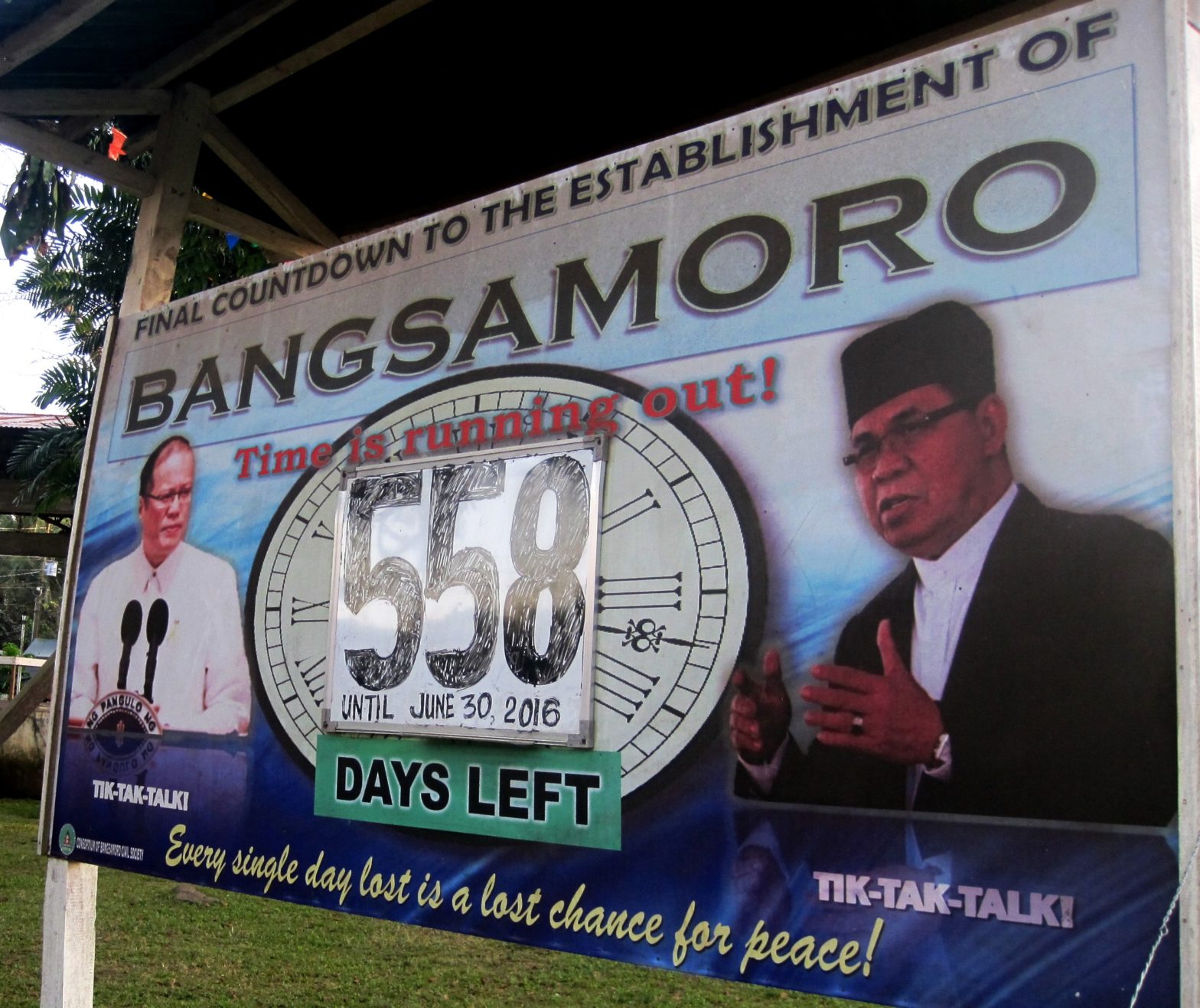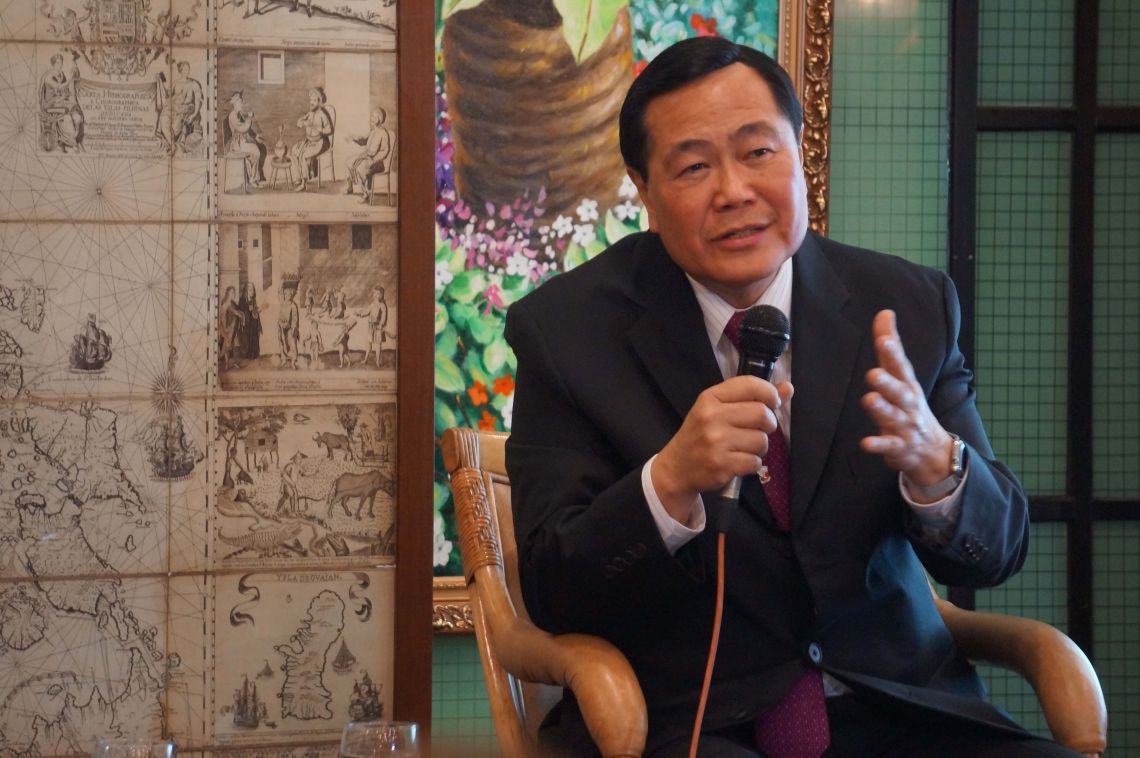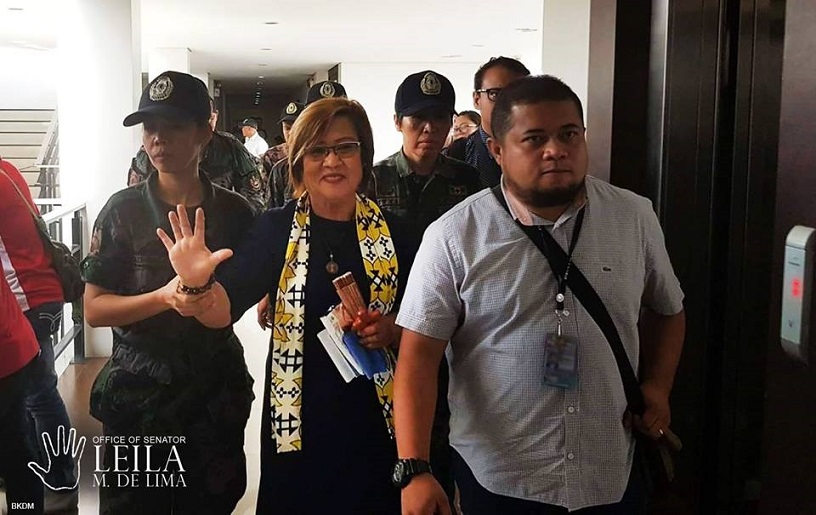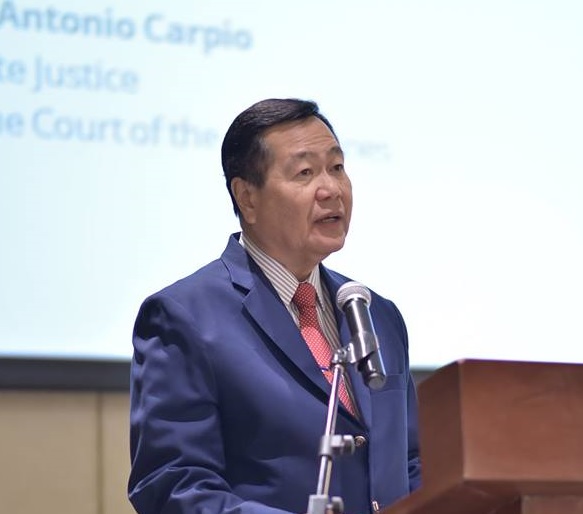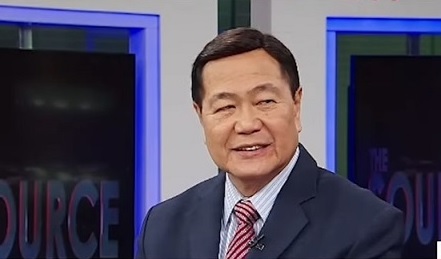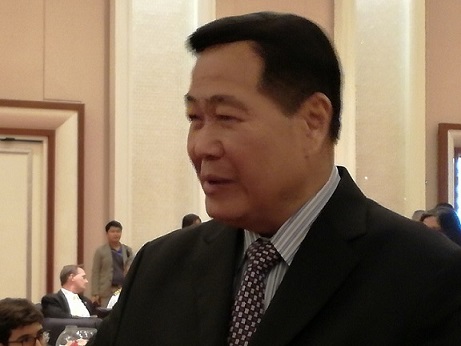
Acting Chief Justice Antonio T. Carpio
Anyone who decides to decline a nomination to be the Supreme Court Chief Justice, the fifth highest government position in the country, is worthy of our highest respect and admiration.
When he speaks, we listen.
Acting Chief Justice Antonio Carpio, who said last week that he would decline a nomination to be the Chief Justice to replace the ousted Maria Lourdes Sereno because he voted against the quo warranto petition that was used to remove her, spoke before the graduates of the University of the Philippines National College of Public Administration and Governance last Friday.
Carpio warned about four ideas being pushed and spread to the Filipino people that are” radical and divisive” which “could Divide the Nation and even lead to the dismemberment of the Philippine state.”
The four divisive Ideas, according to Carpio, are 1) the attempt to introduce the concept of a First Nation into our legal system; 2) the legal concept of indigenous people under the Indigenous Peoples Rights Act of 1997 or the IPRA Law; 3) the proposition found in the proposed Bangsamoro Basic Law that the BBL represents the aspiration of the Bangsamoro people to their right to self-determination.
The fourth is a topic that he has tirelessly explained to the Filipino which is “the Duterte Administration’s foreign policy in the West Philippine Sea which can be summarized in this way: if we seek to enforce the arbitral ruling, China will go to war against the Philippines.”
Due to space limitation, I will just reproduce here thenumber three divisive idea. The BBL is currently being fast-tracked by both members of the Senate and the House of Representatives in a bicameral conference to be ready for ratification before the President’s State of the Nation Address on July 23.
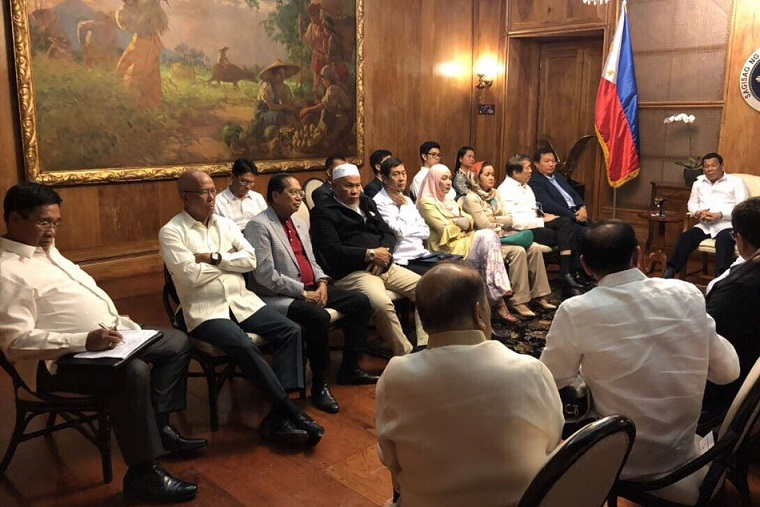
Pres. Duterte meets members of Congress, cabinet members and Muslim leaders on the BBL. Photo by Presidential Spokesperson Harry Roque. From ABS-CBN online.
Let’s pay attention to what Justice Carpio is saying:
“The third Idea that Divides the Nation is the proposition, found in the proposed Bangsamoro Basic Law or BBL now pending before Congress, that the BBL represents the aspiration of the Bangsamoro people to their right to self-determination.
“The right to self-determination, a recognized principle in international law, has two meanings, depending on the socio-political environment where it is used. First, the right to self- determination can mean the right of an ethnic minority to self-governance within a single indivisible state. This meaning is consistent with our Constitution. Second, the right to self-determination can also mean the right to secession or independence from a state. This meaning is anathema to the Constitution and must not be allowed to be grafted into our legal system.
“There is an absolute need to clarify that the right to self- determination proposed to be embodied in the BBL is the right to self-governance within a single Philippine state. There should be no ambiguity whatsoever about this. If there is no clarification, or if there is even a shadow of doubt, then the right to self-determination can be interpreted in the light of the long history of secessionist movements among the Muslim communities in Southern Philippines. That would mean that the right to self-determination is the right to secede. This will result in the dismemberment of the Republic, a prospect too horrendous to contemplate.
“I once asked a Spanish judge why the Catalonia autonomous region in Spain held a referendum on whether or not Catalonia should secede from Spain. The Spanish judge replied that the Spanish Constitution is silent on whether the autonomous regions can secede or not. The central government in Madrid interprets the silence as prohibition to secede, while Catalonia interprets the silence as non-prohibition to secede. The Spanish judge then gave a very sound advice: be sure that in your law granting autonomy to any region there is a clear and categorical prohibition to secede, including a clear and categorical prohibition to hold any referendum on secession.
“Thus, we cannot incorporate into our legal system, through silence, negligence or ignorance, the utterly divisive idea of the right to secede in the BBL.”
To read Justice Carpio’s full speech, “Ideas that divide the Nation”, please go to http://www.imoa.ph/ideas-that-divide-the-nation-ad…
